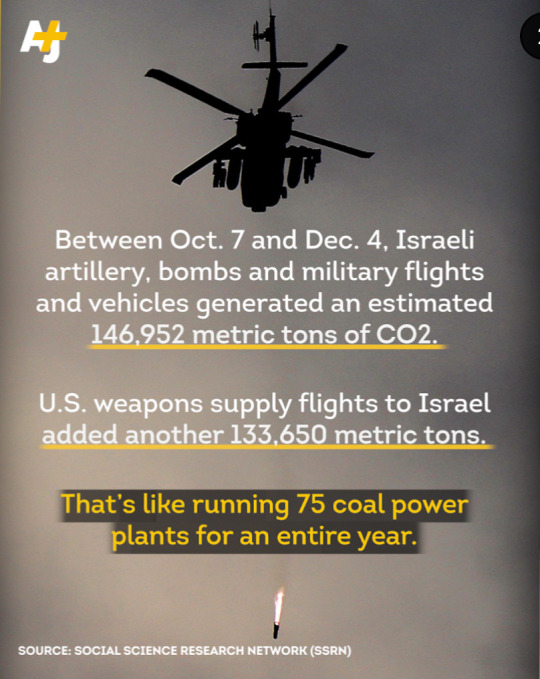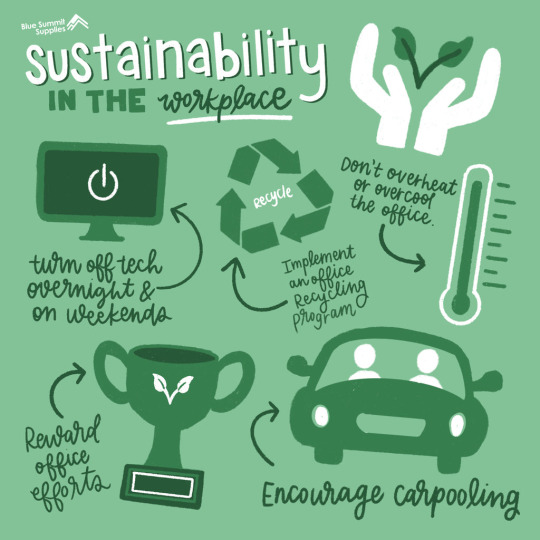#Green environment
Explore tagged Tumblr posts
Text

Forest at dawn
#nature#forest#goblincore#woods#nature blog#wales#trees#scenery#places#lost places#lost in the woods#breaking dawn#dawn#morning#good morning#sunrise#glow#sunlight#sunshine#green#green environment#green spaces#pine forest#pine tree
25 notes
·
View notes
Text




I better see every climate activist speaking about this. Every. Single. One.
#free palestine#gaza#palestine#free gaza#from the river to the sea palestine will be free#pray for palestine#🍉#climate change#climate crisis#carbon emissions#sustainability#green environment#israel#israel terrorist forces#genocide#earth#ceasefire#permanent ceasefire#america#usa
75 notes
·
View notes
Text
instagram
ISNOTREAL IS CAUSING AN ENVIRONMENTAL CRISIS AND NOBODY IS TALKING ABOUT IT!!!!!!
WHERE ARE ALL THESE SUPPOSED ENVIRONMENTAL WARRIORS NOW HUHHH?????
#palestine#free palestine#gaza#free gaza#gaza strip#israel#israel is a terrorist state#current events#genocide#important#green environment#environmental justice#environment#the environment#enviromental#environmental effects#Instagram
21 notes
·
View notes
Text
Butterfly make every moment magical…💫 😍

#nature#beauty#village life#field#travel#butterflies#nature aesthetic#trees and forests#green environment#fresh air#colorful#photography is art#photography#magical world#Every moment magical 😍
4 notes
·
View notes
Text
“Everything is so hot, let’s make the planet hotter by producing electricity to make us colder”
How are we the apex species seriously
#global#green#environment#enviromentalism#green energy#green environment#anarchism#anti human#planet earth#seriously wtf I feel like I’m insane pointing shit like this out
3 notes
·
View notes
Text
Sustainability refers to the ability to maintain ecological, social, and economic systems over the long term, without compromising the ability of future generations to meet their needs. This requires balancing the use of natural resources with the need to protect and preserve the environment.
Sustainability is important because it allows us to create a world where humans can thrive while minimizing negative impacts on the environment. By using resources in a sustainable way, we can ensure that we are meeting our needs without depleting resources or causing harm to the planet.
At the workplace, individuals can contribute to sustainability by creating sustainable programs that reduce waste, conserve energy, and promote environmentally friendly practices. Some examples of programs that can be implemented include:
Recycling and waste reduction programs: This can include implementing a recycling program for paper, plastics, and other materials, and encouraging employees to reduce waste by using reusable containers and water bottles.
Energy conservation programs: This can include implementing energy-saving practices, such as turning off lights and computers when not in use, using energy-efficient appliances, and installing programmable thermostats.
Sustainable transportation programs: This can include encouraging employees to use public transportation, carpool, or bike to work, and providing incentives for these behaviors.
Green purchasing programs: This can include purchasing environmentally friendly products, such as those made from recycled materials, and supporting companies that prioritize sustainability.
By implementing sustainable programs in the workplace, individuals can contribute to a more sustainable future, reduce the negative impact of their organization on the environment, and create a healthier and more productive workplace.l

Image Source:
https://www.bluesummitsupplies.com/blogs/resources/9-office-sustainability-ideas-for-a-
#green environment#sustainability#sustainable#environmentallyconscious#environmentallyfriendly#eco friendly#changes#recycle#don't waste energy#renewablephilosopher#tips#work
8 notes
·
View notes
Text

This tiny hydrogen engine can replace traditional engines in vehicles 🚙
Read more: https://rb.gy/b2e8l
#science#technolovers#technologies#technology#news#engineering#audi engines#unity engine#godot engine#hydrogène#hydrogen#carbon#carbon emissions#green environment#green energy#green#research#science acumen#science and technology
2 notes
·
View notes
Text
That’s why i loved Europe so much. That and taxes being included in your purchase, and it’s usually a round number

#fuck driving#I wanna walk#like imagine all important landmarks are like 30 min away#everything is so close and I love it#which is strange since I want a woodland home#europe#green environment
20K notes
·
View notes
Text
Exploring the Thriving E-Bike Industry with DYU's Mini Electric Bikes in the UK!
Hello, everyone! I'm excited to kick off this discussion about the booming e-bike industry, particularly focusing on the fantastic offerings from DYU. As many of you know, mini electric bikes are becoming increasingly popular, and DYU is at the forefront with their innovative designs and features.
DYU's mini electric bikes are perfect for urban commuting, providing a convenient and eco-friendly alternative to traditional transportation. With their sleek designs and impressive battery life, these bikes not only make travel easier but also contribute to a greener environment.
I'd love to hear your experiences with DYU's mini electric bikes or any thoughts you have about the e-bike industry in general. Let's share our insights and celebrate the positive impact of e-bikes in our lives!
#green environment#mini electric bikes#urban commuting#battery life#eco-friendly transportation#e-bike industry
0 notes
Text
Exploring the Exciting World of DYU Fold Up Electric Bikes
Are you curious about the fantastic benefits of fold up electric bikes? The DYU brand is leading the charge in the e-bike industry, offering innovative designs that combine convenience and performance.With a DYU fold up electric bike, you can easily navigate through traffic and enjoy the freedom of cycling without the hassle of storage. These bikes are perfect for urban dwellers who need a compact solution for their daily commute.Not only are DYU bikes stylish and easy to fold, but they also come equipped with powerful electric motors that make your rides smooth and enjoyable. Plus, they contribute to a greener environment by reducing carbon emissions.Join the growing community of e-bike enthusiasts and experience the joy of riding a DYU fold up electric bike today!
#electric motors#compact solution#DYU#fold up electric bikes#sustainable transport#green environment#urban commuting
0 notes
Text
0 notes
Text
Exploring the Benefits of DYU E-Bikes for Your Daily Commute
I just got my hands on a fantastic DYU e-bike, and I couldn't be more thrilled! It’s perfect for my daily commute, making my rides smooth and enjoyable. The sleek design and powerful motor really enhance the experience, allowing me to effortlessly navigate through traffic. The battery life is impressive, so I don’t have to worry about running out of power on my way to work.
I love how eco-friendly and efficient it is, contributing to a greener environment while also saving on transportation costs.
If you're considering an e-bike for your commute, I highly recommend checking out DYU! You won't be disappointed with the quality and performance.
Happy riding!
Sent from my iPhone using E-Bike Enthusiasts Forum
#DYU e-bike#daily commute#eco-friendly#transportation#battery life#powerful motor#smooth rides#green environment#efficiency#cost savings
0 notes
Text
أبرز 5 مواصفات السيارة الكهربائية هيونداي ايونك 5

يمكن تعريف السيارة الكهربائية هيونداي ايونك 5 على أنها سيارة كهربائية تمثل قفزة نوعية في عالم السيارات الكهربائية، حيث تعتبر تلك السيارة أو إصدار من سلسلة أيونك الجديدة من قبل شركة هيونداي، وتم العمل على بناء تلك السيارة على منصة E-GMP وهي منصة معيار عالمية، وت�� تصميم تلك السيارة بأداء عالي للغاية مع نطاق قيادة كبيرة، وتصميمها مستوحي من المستقبل من خلال مزيج رائع بين الكلاسيكية والعصرية، مع الاهتمام الكبير بالتفاصيل الداخلية والخارجية.
0 notes
Text
Sustainable Logistics: How Green Practices Are Shaping the Future of Transportation.

The logistics and transportation industry is undergoing a significant transformation, driven by the growing focus on sustainability. As companies, governments, and consumers become more environmentally conscious, logistics providers are being pushed to adopt green practices that reduce their carbon footprint, conserve resources, and protect the planet. This shift is not only beneficial for the environment but also influences the future of transportation and logistics.
In this blog, we'll explore how sustainable logistics is shaping the industry, why it’s important, the challenges it presents, and how companies are implementing green logistics practices.
1. What is Sustainable Logistics?
Sustainable logistics refers to the practices and strategies used by logistics and transportation companies to reduce the environmental impact of their operations. These practices include reducing carbon emissions, optimizing fuel efficiency, minimizing waste, and adopting eco-friendly technologies.
With the growing global demand for efficient and fast delivery, logistics companies face pressure to meet these expectations while being environmentally responsible. Sustainable logistics aims to strike a balance between these two needs, ensuring that businesses can operate efficiently while minimizing their impact on the environment.
2. Why Sustainable Logistics is Important
Environmental Impact
The transportation industry is one of the largest contributors to global greenhouse gas (GHG) emissions. According to the Environmental Protection Agency (EPA), the sector accounted for approximately 29% of total U.S. emissions in 2020. Reducing the carbon footprint of transportation and logistics can help mitigate the adverse effects of climate change.
Regulatory Pressure
Governments around the world are enacting stricter environmental regulations and laws. For instance, the European Union has implemented stringent carbon reduction targets as part of its Green Deal. Logistics companies that adopt green practices early are better positioned to meet these regulatory demands and avoid potential fines or penalties.
Customer Expectations
Modern consumers are increasingly concerned about the environmental impact of their purchases, including how products are shipped and delivered. Companies that adopt sustainable logistics practices can appeal to this growing customer base and differentiate themselves in a competitive market.
Cost Savings
Sustainable logistics can lead to significant cost savings. By optimizing routes, improving fuel efficiency, and reducing waste, companies can cut down on operational costs and improve their bottom line. For example, the shift toward electric and hybrid vehicles can reduce fuel expenses in the long term.
3. Green Practices Shaping the Future of Transportation
A. Fuel Efficiency and Alternative Energy Sources
The transition from fossil fuels to cleaner energy sources is one of the most significant trends in sustainable logistics. This includes:
Electric and Hybrid Vehicles: Electric trucks and hybrid vehicles are increasingly popular for last-mile delivery and short-haul transportation. These vehicles produce fewer emissions than traditional diesel trucks, contributing to a cleaner environment.
Biofuels and Renewable Energy: Biofuels derived from organic materials are used as an alternative to traditional fossil fuels. These fuels are less carbon-intensive and can help reduce the overall environmental footprint of transportation.
B. Route Optimization
Route optimization is a crucial strategy in sustainable logistics. By using advanced technologies like artificial intelligence (AI) and machine learning, logistics companies can design the most efficient routes for their deliveries, minimizing fuel consumption and emissions. Efficient route planning helps avoid congested routes, reduces idling time, and ensures that drivers take the shortest path to their destination.
C. Eco-Friendly Warehousing
Sustainable warehousing is another key component of green logistics. Companies are adopting measures to make their storage facilities more energy-efficient and environmentally friendly, such as:
Solar Panels: Warehouses equipped with solar panels can generate their own energy, reducing reliance on non-renewable energy sources.
Energy-Efficient Lighting: LED lighting and motion-sensor lights are increasingly used to conserve energy.
Smart Climate Control Systems: Temperature regulation systems that adjust based on real-time data can help reduce energy consumption in refrigerated warehouses.
D. Packaging Waste Reduction
Reducing packaging waste is a significant step toward sustainability. Logistics companies are adopting eco-friendly packaging materials, such as recycled cardboard, biodegradable plastics, and reusable containers. Moreover, innovative packing solutions ensure that shipments are packed efficiently to reduce the overall volume of goods transported, leading to lower emissions.
E. Digitalization and Paperless Operations
Going paperless is an essential part of sustainable logistics. By digitizing documentation and invoicing, logistics companies can significantly reduce their paper waste. Technologies such as electronic bills of lading (eBOL) and digital inventory management are becoming standard practices across the industry.
F. Circular Supply Chain
A circular supply chain involves reusing, repairing, and recycling products, packaging, and materials at the end of their life cycle, rather than discarding them. This reduces waste and promotes a more sustainable approach to logistics. Companies that implement circular supply chain practices can benefit from reduced material costs and improved environmental performance.
4. Challenges of Sustainable Logistics
Despite the numerous benefits, there are challenges associated with adopting sustainable logistics practices:
High Initial Costs: Investing in new technologies, such as electric trucks or solar-powered warehouses, requires significant upfront capital. However, these costs are often recouped over time through energy savings and operational efficiency.
Infrastructure Limitations: In many regions, the infrastructure needed to support electric or alternative fuel vehicles is still lacking. This can limit the adoption of green logistics practices in some areas.
Operational Complexity: Implementing sustainable logistics practices can complicate operations, especially in the early stages. Companies need to train employees, adopt new technologies, and redesign their supply chains to meet sustainability goals.
5. The Future of Sustainable Logistics
As sustainability continues to become a top priority, the logistics industry is evolving to embrace greener practices. From electric vehicles to eco-friendly warehouses, the future of logistics is undoubtedly green. The drive for sustainability is not only beneficial for the environment but also helps companies meet regulatory requirements, attract environmentally conscious customers, and reduce operational costs.
The path to sustainable logistics may come with challenges, but the long-term benefits make it an essential focus for businesses looking to remain competitive and responsible in the modern world.
6. Conclusion
Sustainable logistics is no longer just a trend—it's the future of transportation. By embracing green practices, companies can reduce their environmental impact, improve operational efficiency, and meet the growing demand for eco-friendly services. As we move into a more environmentally conscious era, logistics companies must continue to innovate and adapt. Sustainable logistics is not only good for the planet but also essential for long-term business success.
0 notes
Text
Why Solar Energy is Good for the Environment
Are solar panels beneficial for the environment? Absolutely! Solar energy offers numerous environmental benefits, making it a sustainable and eco-friendly choice for electricity generation. Here are the key advantages of using solar energy:

Reduces Greenhouse Gas Emissions
Solar energy systems generate electricity without releasing harmful greenhouse gases, which helps mitigate climate change. In the United States, the installed solar capacity is sufficient to power over 36.1 million average American homes and offset more than 222 million metric tons of carbon dioxide emissions. This shift to solar power significantly lowers the carbon footprint of both households and businesses, contributing to global efforts to preserve the environment. By 2035, widespread adoption of solar energy in the U.S. is projected to reduce national greenhouse gas emissions by 40% from 2005 levels, greatly supporting climate action goals.
Decreases Air Pollution
Unlike fossil fuels, solar power does not produce air pollutants like sulfur dioxide and nitrogen oxides, which can cause respiratory problems and other health issues. A study by the National Renewable Energy Laboratory (NREL) estimates that increasing solar energy deployment could prevent 25,000 to 59,000 premature deaths in the U.S. by 2050 due to improved air quality.
Conserves Water
Solar energy requires significantly less water compared to traditional power generation methods, such as cooling systems used in coal, natural gas, and nuclear power plants. Solar power systems help save approximately 1.5 billion gallons of water annually in the U.S. by reducing the reliance on thermoelectric power plants, which depend heavily on water for cooling.
Mitigates Climate Change
By providing a renewable source of energy, solar power reduces dependence on fossil fuels, which are major contributors to global warming and climate disruption.
Sustainable and Renewable
Solar energy is abundant and renewable, reducing reliance on finite resources such as coal, oil, and natural gas.
Enhances Energy Independence
Using solar energy, countries can lessen their dependence on imported fossil fuels, thereby enhancing energy security and economic stability.
Promotes Land Rehabilitation
Installing solar panels on degraded lands or brownfields can rehabilitate these areas, prevent soil erosion, and potentially enhance local biodiversity.

Impact of Solar Energy on Wildlife
When integrated with conservation efforts, solar energy systems can protect natural habitats while harnessing clean energy, ultimately benefiting the environment and promoting biodiversity. Introducing any energy technology requires careful consideration to minimize environmental impacts. All commercial and residential solar projects go through a permitting process to mitigate environmental impact.
The transition from traditional energy sources to renewable energy like solar can have a net positive impact on local ecosystems due to the following:
Reducing Air Pollution: By decreasing reliance on fossil fuels, solar energy reduces emissions of pollutants that harm ecosystems and wildlife. Conserving Water: Solar power generation requires significantly less water than traditional power plants, helping to preserve local aquatic ecosystems. Minimizing Habitat Destruction: Solar farms can be built on already disturbed land, such as rooftops or deserts, reducing the need to clear forests or other natural habitats. Promoting Biodiversity: Solar installations can create micro-habitats for various plant and animal species, fostering biodiversity in surrounding areas.
Concluion
Switching to solar energy not only benefits the environment by reducing greenhouse gas emissions and conserving resources but also provides economic advantages and enhances energy security. Whether through solar farms or rooftop installations, solar energy is a sustainable choice for a cleaner, greener future.
1 note
·
View note
Text
The global Biomethane Market is expected to grow from an estimated USD 10.3 billion in 2023 to USD 60.2 billion by 2030, at a CAGR of 28.7% according to a new report by MarketsandMarkets™. This anticipated expansion underscores the increasing prominence and adoption of biomethane as a renewable energy source. Several factors contribute to this robust growth trajectory, including heightened global awareness of climate change, a growing emphasis on reducing greenhouse gas emissions, and a concerted push towards sustainable and cleaner energy alternatives. The market's potential is further propelled by advancements in biomethane production technologies, fostering increased efficiency and cost-effectiveness. Additionally, supportive government policies and incentives worldwide are creating a conducive environment for the biomethane sector, encouraging investments and fostering innovation. As industries and consumers increasingly prioritize environmentally friendly energy sources, biomethane's role in addressing these demands is becoming more pivotal.
#biomethane#biomethane market#biomass#bioenergy#biofuels#biofuel#energy#energia#power generation#power#renewable power#renewableenergy#renewable resources#renewables#renewablesolutions#renewablefuture#renewable energy#green energy#green environment#clean energy#sustainable future#sustainable energy#sustainable#sustainability#climate change
0 notes